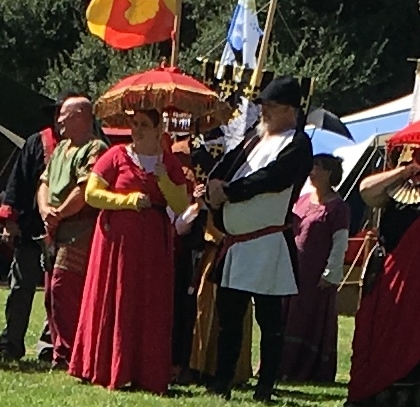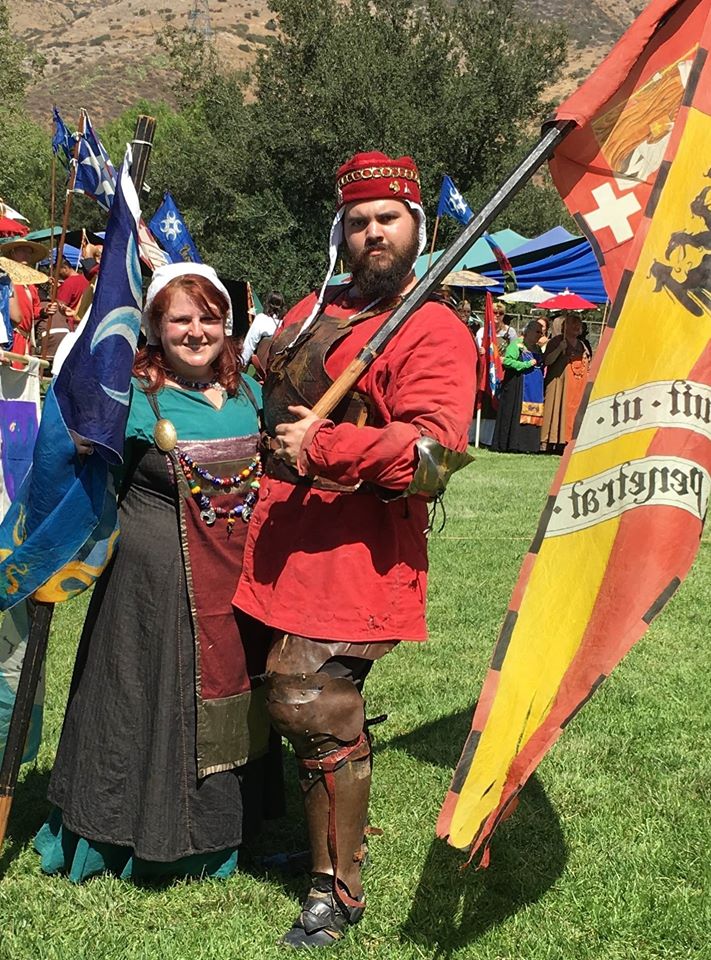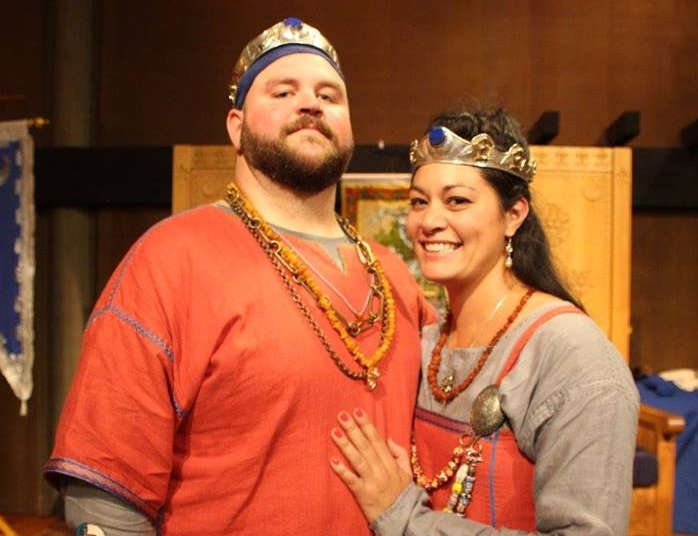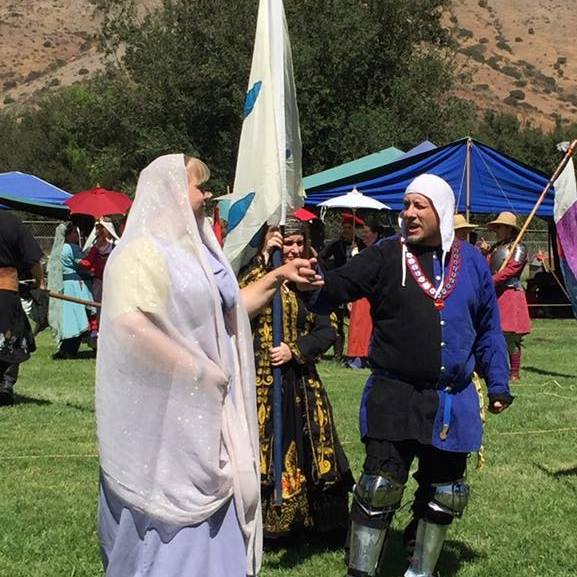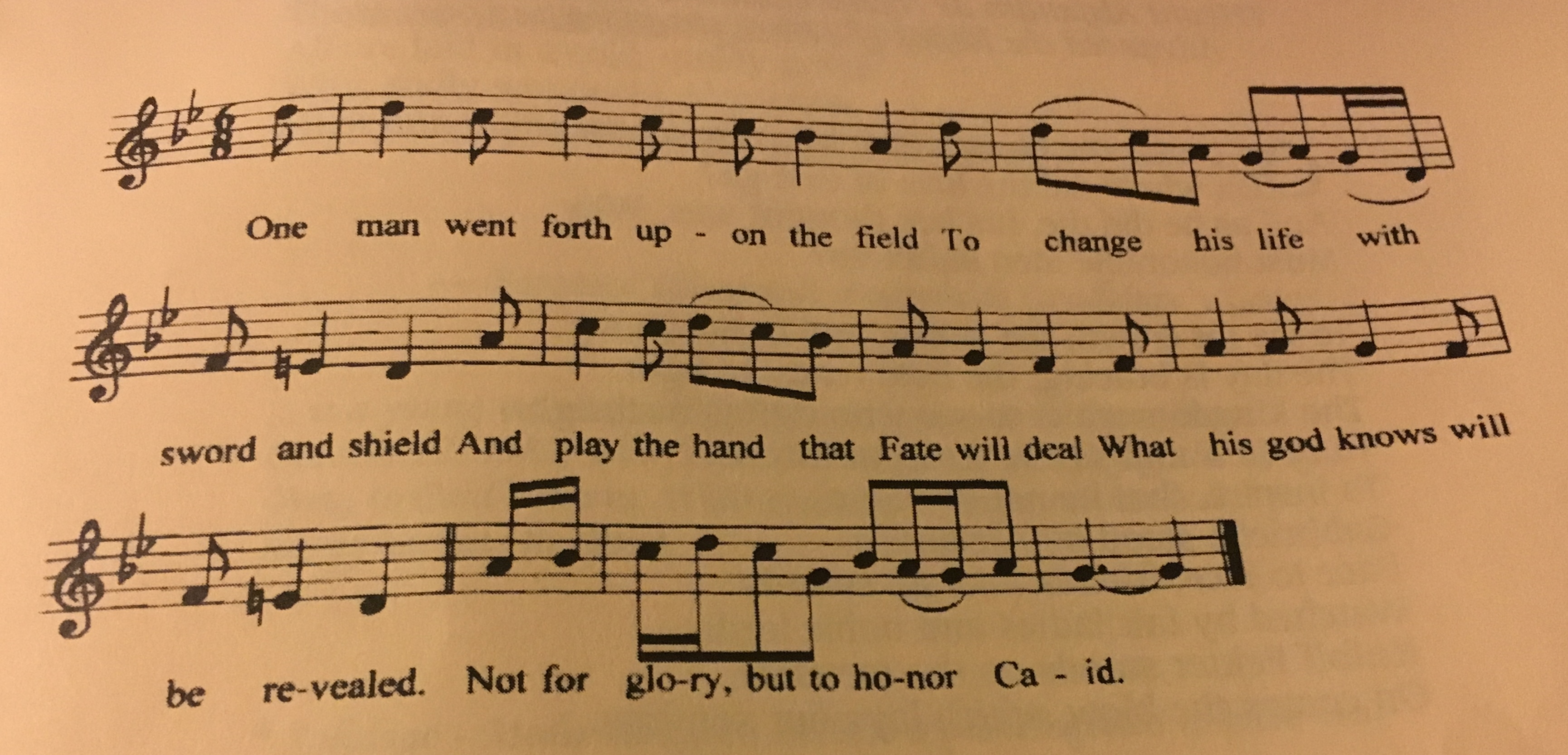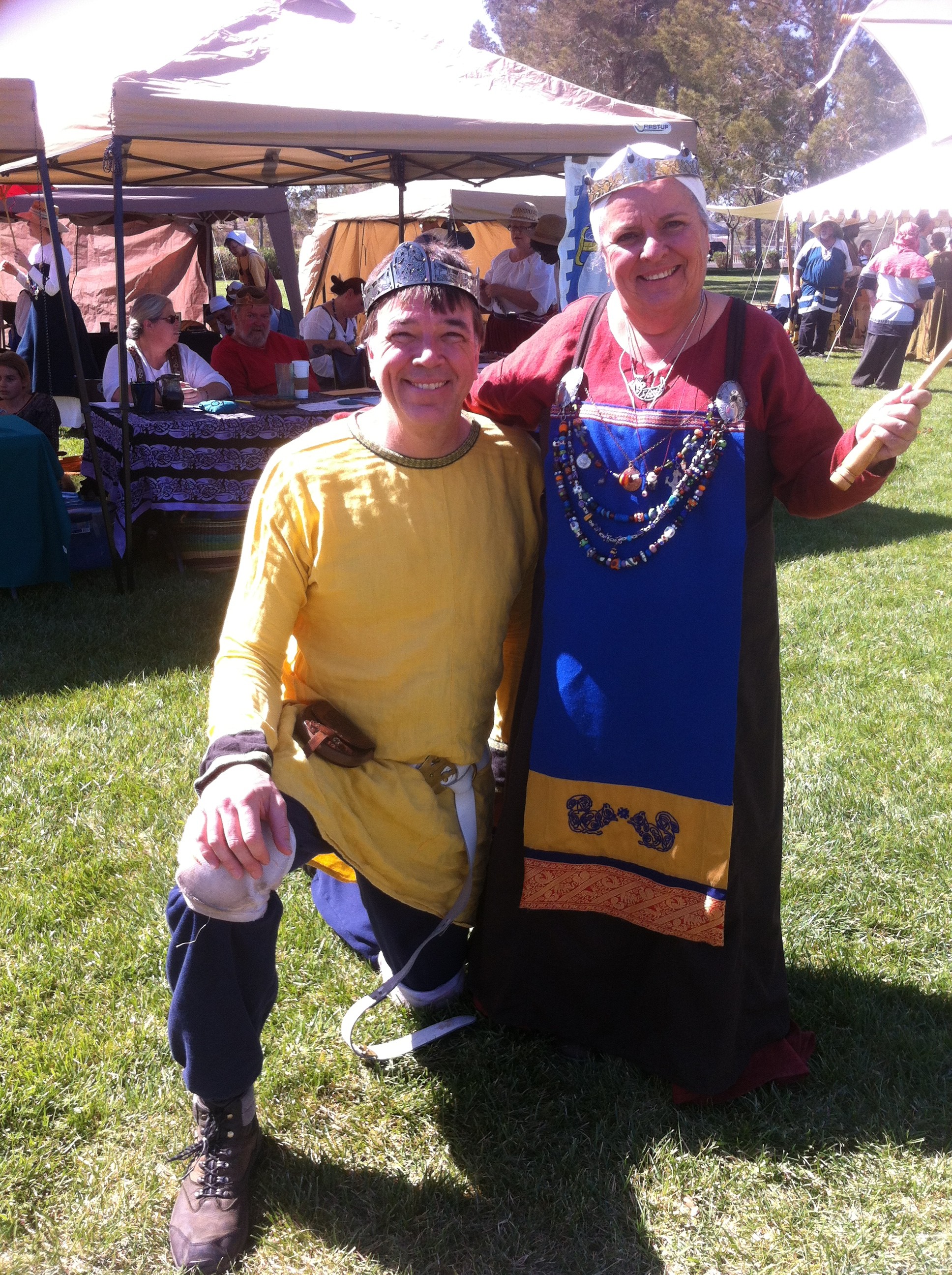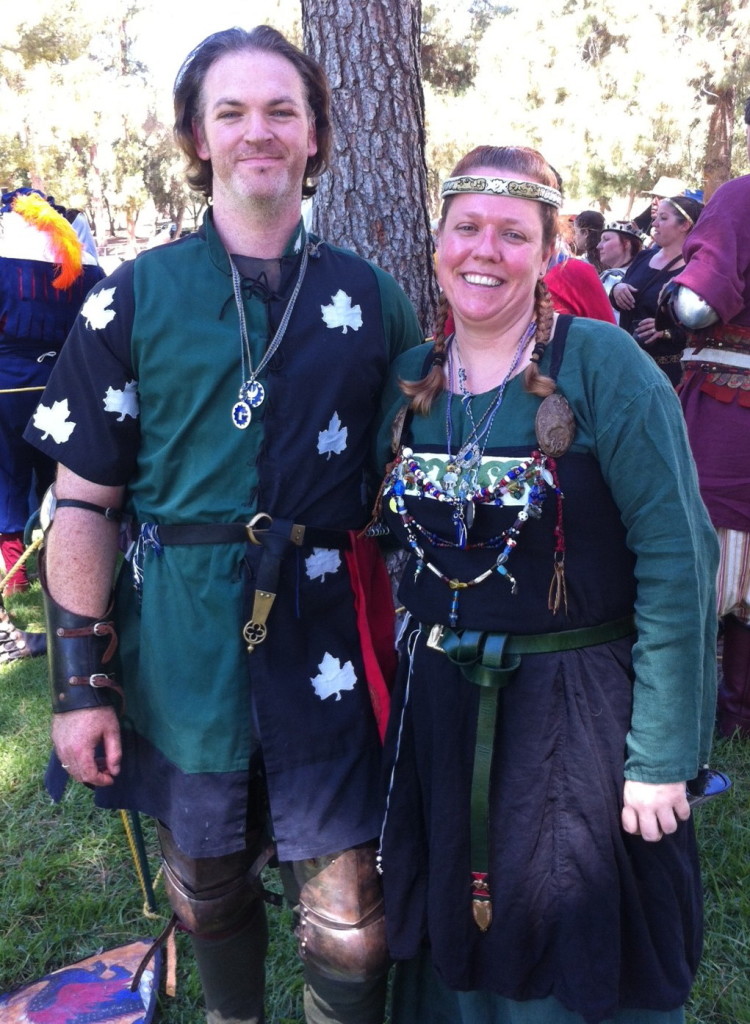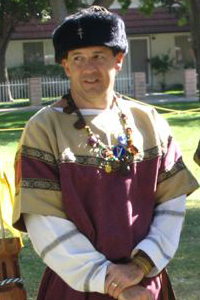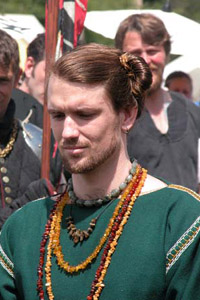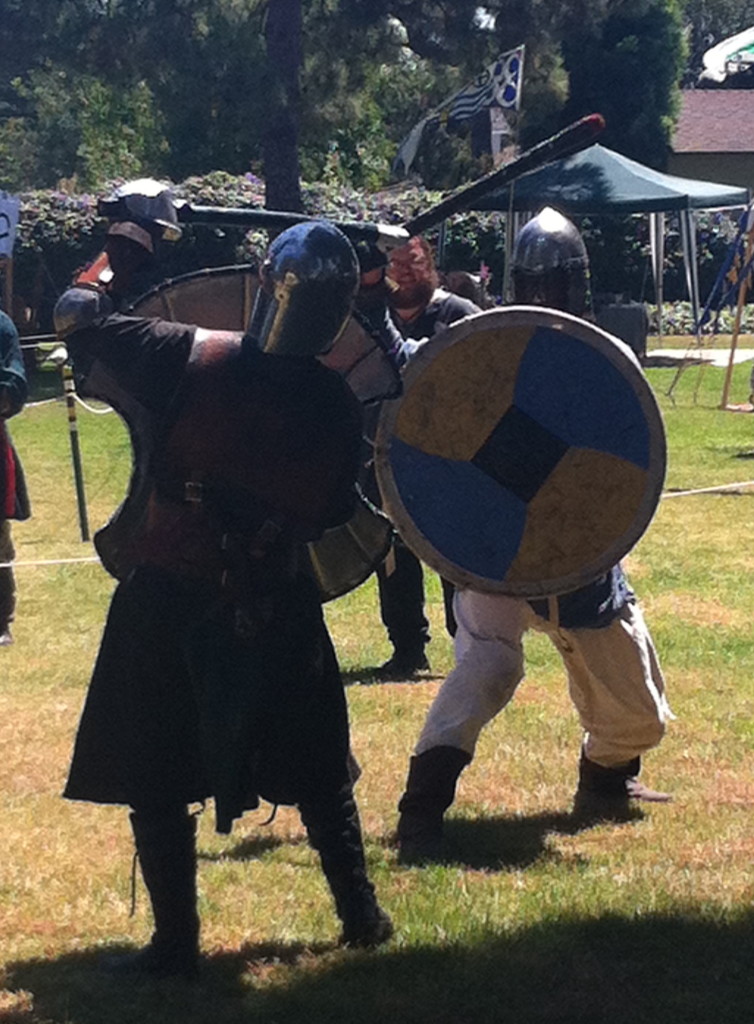Lord Fearghus Cochrane
fallen in Fall Crown Tourney, A.S. L
(Standard Habbie)
“Claymores ready!” ‘twas Herald’s cry
Lord Fearghus stood, prepared to die
(As heroes do – let Fate decide
The corbie’s feast).
But Patrick brought a gallus fight
For quick defeat.
A second cry past hooded crow
But Cochrane’s broadsword was too slow
And Adam dunt a heavy blow
Upon this mac.
And gentle, bigly Fearghus, lo!
He fell a-back.
For ev’ry man that stood to fight
And bring the Victor wha’ be right
To wear the Caid crown Twelfth Night
This rhyme I make
And for each fallen hero cite
A tearless wake.
For heroes, praise is our reply
Upon their deeds we all rely
Their songs become our battle cry
We will not grieve.
But in our hearts we hold them aye
So this I scrieve.
–Bannthegn Beathog nic Dhonnchaidh
. . . is a 14th century bard who can often be seen traveling far from her home in the Highlands with her lord husband and muse. If a good tale crosses her path, she will sing a song about it, pull out its hair and spin it, or throw it in a pot and cook it up.

